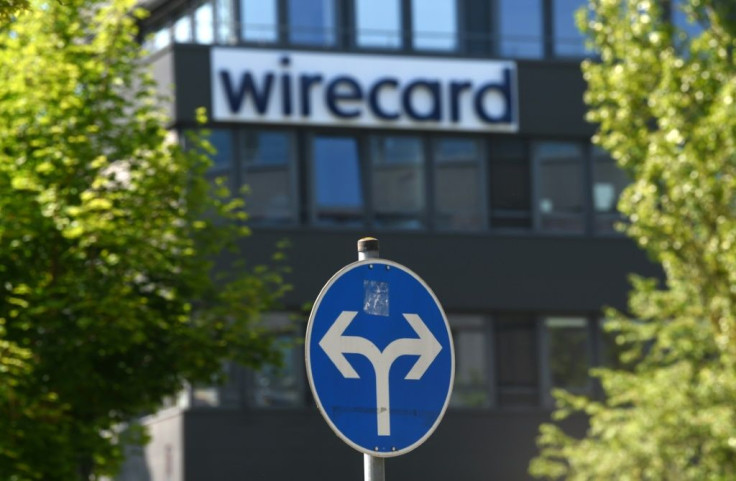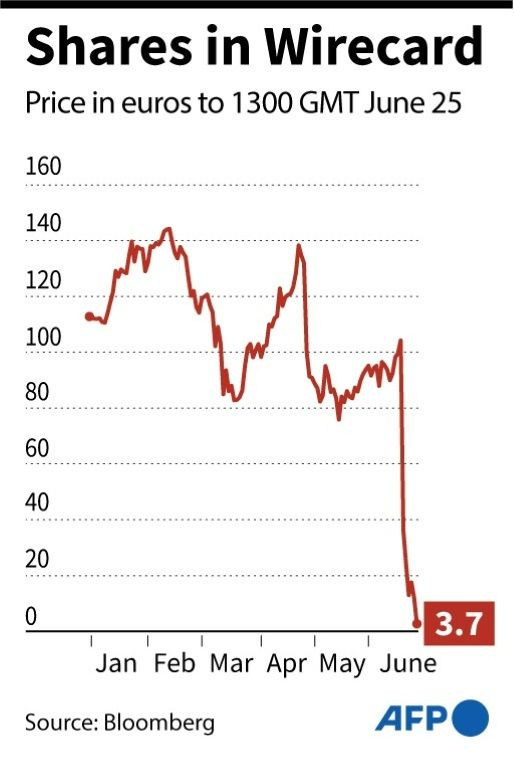Wirecard Collapse An 'Unparallelled Scandal'
The dramatic collapse of payments provider Wirecard is an "unparallelled scandal", Germany's finance minister said Thursday, after the group filed for insolvency as it admitted that 1.9 billion euros missing from its accounts likely did not exist.
Finance Minister Olaf Scholz said the debacle "must be a wake-up call that we need more oversight, more controls" over such financial firms.
"The scandal is unparallelled in the financial world," he said.
Wirecard's former CEO Markus Braun was this week detained on suspicion of falsifying accounts before being released on bail, in a saga that has evoked memories of the Enron accounting scandal in the United States.

Auditing company EY accused Wirecard of carrying out fraud on a global scale, adding that it had been given false statements when it was poring through the firm's 2019 accounts.
"There are clear indications that this was an elaborate and sophisticated fraud involving multiple parties around the world in different institutions with a deliberate aim of deception," EY said.
The damning assessment came hours after Wirecard filed for administration.
Wirecard said it had opened bankruptcy proceedings with a district court in Munich "due to impending insolvency and over-indebtedness".
Trading in the group's shares was temporarily halted by the Frankfurt Stock Exchange, but when it resumed the stocks collapsed, closing at 3.53 euros. Just over a week ago, it stood at around 100 euros.

Founded in 1999, the Bavarian start-up rose from a company piping cash to porn and gambling sites to a respectable electronic payments provider that edged traditional lender Commerzbank out of the DAX 30 index.
Once held up as an example of an innovative, nimble company outsmarting lumbering banking giants at their own game, Wirecard's fall from grace began in January 2019 when questions emerged about accounting irregularities in its Asian division.
The Financial Times in particular flagged the issues in a series of articles. But the company in turn accused the FT of colluding with speculators to drive down their shares.

At one point, prosecutors in Munich even launched an investigation against one of the FT's journalists.
But the allegations persisted, leaving Wirecard's stocks on a rollercoaster ride for several months.
The final nail in the coffin came last Thursday when auditors Ernst & Young said they were unable to find 1.9 billion euros of cash in the company's accounts.
The missing cash makes up a quarter of the balance sheet.
The sum was held to cover risks in trading supposedly carried out by third parties on Wirecard's behalf and was meant to be sitting in trustee accounts at two Philippine banks.
But the Philippines' central bank said the cash never entered its monetary system and both Asian banks, BDO and BPI, denied having a relationship with Wirecard.
Wirecard, which employs nearly 6,000 people, admitted on Monday that the funds likely "do not exist".
The group's former CEO Braun, an Austrian computer scientist, turned himself in that evening before being bailed for five million euros the following day.
Prosecutors believe Braun artificially "inflated" the company's assets and revenues through "fake transactions with so-called third party acquirers in order to make the company seem financially stronger and more attractive to investors and customers".
The scandal has stunned Germany and comes at a time when Europe's biggest economy is already grappling with the deepest recession since World War II because of the coronavirus pandemic.
German Economy Minister Peter Altmaier has called for a thorough investigation and warned that the controversy could erode confidence in the country's finance sector.
Banking supervision chief Felix Hufeld has admitted that the watchdog Bafin "had not been effective enough to prevent something like this from happening".
© Copyright AFP 2024. All rights reserved.





















